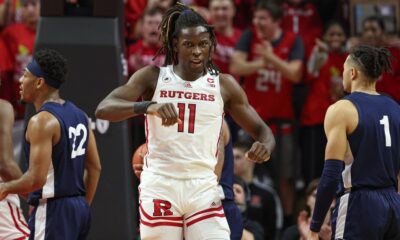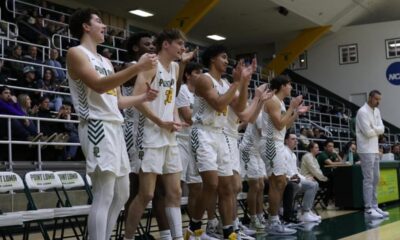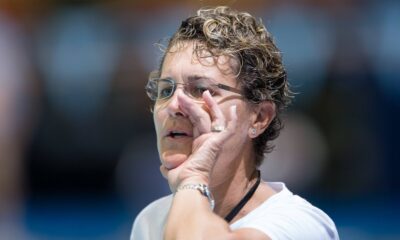
The court of public opinion is now in session, BYU is on trial In the case of a racist incident, a fan was accused of yelling the words “you shouldn’t say” to a visiting player. person) is guilty.
Duke volleyball player Rachel Richardson, who is black, claimed to have heard “very strong and negative racial slurs” from the student section during a recent volleyball game at BYU’s Smith Field House. later situation.
“(I) was targeted and racistly taunted throughout the match,” she said. “The defamation and comments escalated into threats.…Both the official and his BYU coaching staff became aware of the incident during the game but were unable to take the necessary steps.…They also said: I didn’t handle the post-match situation properly.” (Richardson) Later praised BYU for handling the situationand specifically acclaimed Athletic Director Tom Holmoreply. )
The problem, and this is a pretty big one, is that no one is listening to the racial slurs. So far, no one has come forward saying they heard anything inappropriate. Not a police officer stationed near the BYU Student Division. Not the students watching the game just a few feet away from the court. Not even Richardson’s Duke teammate. BYU officials also can’t find any evidence of that in the video (the fan is sitting so close to the court that it’s clearly visible in the video). father, they were not in the match. They said he was 1,200 miles away in Texas and was the first to post the incident via Twitter.
However, BYU Police Officer Richard Rosen said, “While standing on the sidelines between a Duke player and the ROC section during a game, I did not hear or observe inappropriate comments or words from the ROC section. I did,” he reported.
Still, the denunciations were swift. No one waited for what really happened.South Carolina director Dawn Staley Canceled the Home and Home basketball series With BYU about the incident. His college volleyball team garnered Richardson’s support by posting a hastily tweet about the “blackout.” #BlackoutRacism, #StandWithRachelRichardson. The American Volleyball Coaches Association is urging the volleyball community to wear black to combat racism via a tweet. death threat It was done to a BYU volleyball coach. The accusations spread like wildfire in media across the country.
Even BYU, sensitive to these issues, like all universities, responded quickly. ban fans Who is at the center of the allegations before the facts come out. Richardson singled out one man who yelled slurs — she said it happened between the second and fourth sets — but Laursen realized the accusations and then yelled at the man in the fourth set. and looked carefully at the student section. He said he had heard nothing offensive.
“[The man]seemed more interested in talking to me than in rooting for BYU,” Laursen reported. Based on my training and experience in crisis intervention training, he may have (A) Sperger’s Syndrome or Autism.”
From the beginning, the accusations from Duke’s volleyball player seemed suspicious and have never seemed otherwise since. It’s hard to believe that you can — repetition- In the crowd without objections from the surroundings. especially among students. Especially on college campuses. In particular, he said that at BYU, students are required by the school’s honor code to report anything that violates the school’s standards.
BYU’s student newspaper, The Cougar Chronicle, interviewed fans sitting in the student corner during the game, but was unable to find anyone to corroborate Richardson’s accusations. Some fans went on record saying they hadn’t heard the racial slurs, and some said they didn’t realize there was a problem until after the game, according to Chronicle, the mother of a BYU student says he personally knows five of her who were in the student section during the game. One was on the court and two were in the front row.
this all sounds similar similar incident Years ago, it involved Britton Johnsen, a basketball player at the University of Utah. Following the semifinals of the 1998 Final Four, the North Carolina player accused Johnsen of calling him “Don’t you say”. got support. It caused a predictable media stir, but the UNC player eventually retracted and apologized.
This is not to say Richardson didn’t hear anything. She says she heard it “very clearly.” But is it possible that she just heard it and thought the words were something else?
we probably never know. Either way, the damage was done. The court of public opinion has already spoken.















